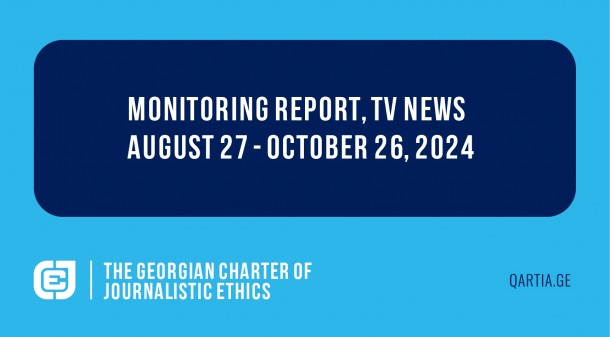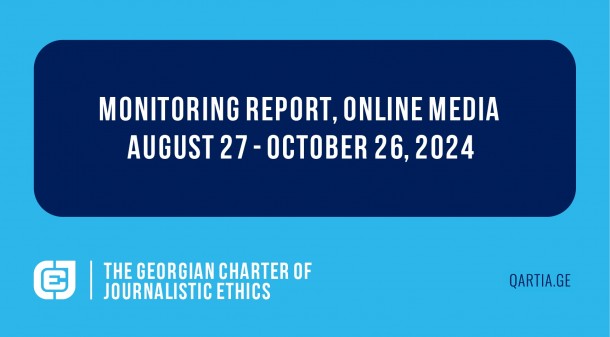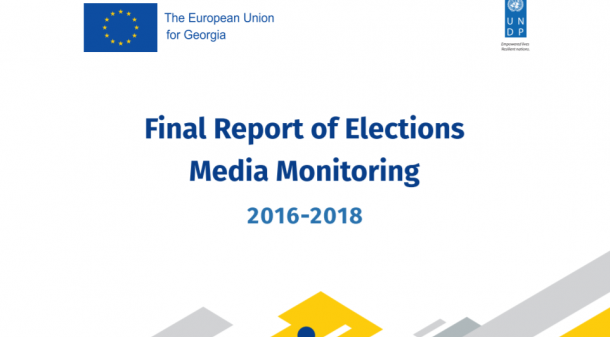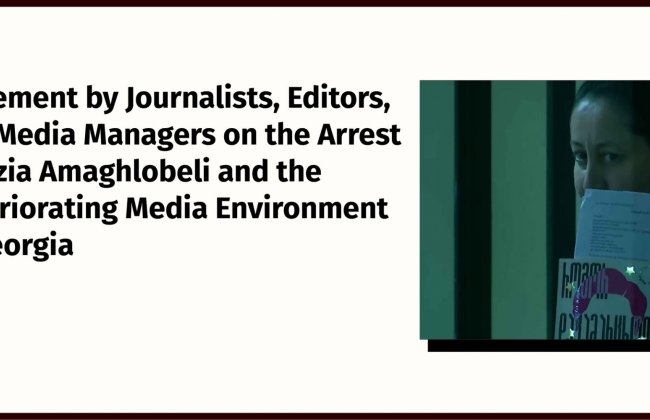The Georgian Charter of Journalistic Ethics, with EU support, under the “Supporting Free and Fair Elections Cycle in Georgia” project, led by the International Society of Fair Elections and Democracy (ISFED), examined media coverage of election processes and electoral subjects, through qualitative research method.
The Charter observed talk shows aired on the following 10 television channels during the prime-time slot from 8:00 PM to 11:59 PM, from August 27 to October 26: two public broadcasters – First Channel and Adjara TV – and eight national broadcasters: Mtavari Arkhi, TV Pirveli, Formula, Kavkasia, Palitra News, Rustavi 2, Imedi, and POSTV.
Key Findings
· As in previous years, television channels were heavily polarized. Some were biased in favor of the government, while others were in favor of the opposition. The polarization was further deepened due to the adoption of two laws before the 2024 elections: 1. The law purportedly passed for the sake of transparency, which was labelled by a segment of society as the “Russian Law,” and 2. The censorship law, which the government justified as a means to restrict so-called LGBT propaganda. Following the adoption of these laws, Western partners stated that Georgia’s EU integration process was effectively suspended.
- Channels clearly affiliated with the government, such as Imedi and POSTV, openly ran anti-Western and disinformation campaigns. These channels actually served as platforms for the government to freely disseminate partisan narratives and conspiracy theories, and they disregarded even minimal professional standards of journalism. Hosts and guests of these TV channels employed all means to discredit pro-Western opposition parties, nongovernmental organizations, and the President.
- For many years now, in parallel with deepening polarization, clearly pro-government channels have not invited opposition politicians, while pro-opposition channels have been boycotted by the representatives of the authorities themselves.
· The First Channel of the Public Broadcaster formally fulfilled its legal obligation to host debates among political parties. It also produced election programs, where political parties were invited one after another. Nevertheless, the Public Broadcaster failed to offer its audience a format that would have provided in-depth and equally critical discussions of the visions of the political parties and would have thus enabled viewers to make a more informed choice. The hosts showed no reaction to politicians’ homophobic statements and displayed a positive bias towards government representatives.
· The Adjara TV program “Free Space,” unlike other programs on the channel, became a platform for spreading anti-Western and opposition-discrediting narratives during the pre-election period. The host openly displayed negative attitudes towards the President and the opposition parties.
- Most pro-opposition channels adopted an overtly anti-government editorial policy. Journalists often positioned themselves as participants in the political process. This was particularly true when it came to the country’s foreign policy course. This trend was exacerbated by the government’s antagonistic stance towards the media. Attempts to marginalize and label them as foreign agents created an increasingly hostile environment for the media and turned journalists into participants in the political process.
- Personal attacks and insults by talk show hosts and guests against political opponents have become the norm, with few exceptions.
- The main editorial line of the talks shows on pro-opposition channels was criticism of the government. With few exceptions, there were no detailed, critical analyses or thematic discussions of election promises made by the opposition parties during the monitoring period.
- No debates were held even among opposition political parties. Viewers were not given the opportunity to compare political visions of opposition parties on various critical issues in a competitive debate format, which would have allowed them to make a more informed choice. This was particularly important given the government’s non-participation in debates and its constant efforts to portray opposition parties as a single, united force, labeled the “collective National Movement” and to blur the line between these political parties.
- Pro-opposition TV channels provided a platform for most of the opposition parties to share their messages without any criticism. No critical analyses were provided, and hosts and politicians mainly positioned themselves as like-minded allies before the audience.
For press release click here
For full report click here







